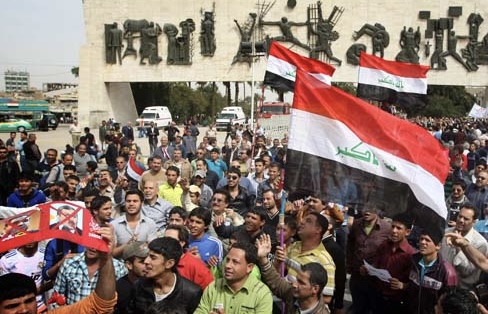Iraq: protests mount over cuts in electricity supplies, with risk of chaos
Protests escalated in Diwaniyah and Najaf due to power supply shortages at a time of record heat (50 Celsius). The police responded with tear gas and live ammunition, and many fear a repeat of the mass protest of 2019. In Nasiriyah, China is set to build a civilian airport to handle 2.5 million passengers a year, boosting its partnership with Iraq.
Baghdad (AsiaNews) – This summer is shaping up to be scorching hot in Iraq and the weather is not the only factor. The latest cuts in power supplies amid the intense heat with temperatures regularly approaching – and exceeding – 50 degrees, is reaching a boiling point in a country where people are already very critical of their leaders.
The latest protests took place over the weekend, but more are expected this week, especially in the cities of Diwaniyah and Najaf, in central and southern Iraq, where activists and young people have set tyres on fire while police have resorted to tear gas and live ammunition to disperse crowds.
According to the independent Al-Sumaria TV station, hundreds of locals joined the demonstrations Sunday evening in Diwaniyah, complaining of “unfairness” and “favouritism” in the distribution of electricity in the area.
“The demonstration began in the Shmiya district and the demonstrators blocked the Diwaniyah-Najaf road in protest against the deterioration of services and the power outage," a security source is quoted as saying.
The next day, similar scenes were repeated in the Shafiiyya district, where more tyres were set on fire.
Ammar al-Khazaaly, an activist who took part in the Diwaniyah protests, told Middle East Eye that ordinary people also took to the streets to denounce police "repression", and the use of tear gas and live ammunition, which caused "minor injuries".
At present, the extent of the unrest is lower than in October 2019, when protests shook the country, with weeks of blockades and a harsh crackdown by central authorities, but popular anger is still palpable.
“These protests are regional - in each region there are their own protests,” but lately, activists and others have joined forces. “The numbers are lower than in previous protests, but they are still large” and might escalate.
Unrest has not spared Najaf, especially in Haidariya, while in Ghamas, which is located between Diwaniyah and Najaf, protesters were injured by live ammunition.
Videos of protests in recent days show protesters chanting slogans, including “no one can beat the Husseiniyah revolution!" a reference to the grandson of the Prophet Mohammed whose martyrdom at the Battle of Karbala in 680 is a symbol of struggle.
The Al-Sabah newspaper cited the Diwaniyah governorate office saying they were trying to achieve a "reliable" electricity supply. For now, residents have to put with repeated outages, with only two hours of electricity supply.
Protests against outages have become commonplace in the country during the summer months, especially since the end of the war against the Islamic State has made public gatherings less dangerous.
Although Iraq is resource-rich, a combination of corruption and crumbling infrastructure has left many without electricity, vital in one of the hottest places on Earth in the summer.
Environmental groups warn that due to climate change, much of the country could become uninhabitable in the coming years while the demand for investment in infrastructure to cope with rising temperatures will only increase.
At the same time, the prospect of mass protests like in October 2019, put down with brutality by the police and then "frozen" by the COVID-19 pandemic, will increase.
To build up infrastructure and links, Iraq is finalising a contract with a Chinese company to build a new airport in Nasiriyah, in the south of the country, further proof of China’s growing interest in the Middle East.
The Iraqi Ministry of Transportation confirmed the deal to build the airport with China State Construction Engineering while a contract to build another airport was signed with Turkey’s Kiklop Design Hertz Insaat.
The Nasiriyah airport, which should be ready by 2025, is set to accommodate 2.5 million passengers per year with a 25-kilometre road to connect it to the rest of the province.
Currently, a military airport is serving the city but no passenger flights are available at present.
China is the main buyer of Iraqi crude and Chinese companies currently manage two-thirds of the country's oil production.
In 2019, Iraq and China signed an "oil for construction" agreement, whereby infrastructure projects would be funded by the sale of 100,000 barrels of Iraqi oil per day to China.
03/06/2019 10:18
26/08/2021 11:58
20/04/2023 18:29







.png)










